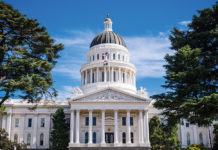Congratulations to us, it must be time to party. We just
survived the Great Recession of 2007-2009, or so we’ve been told
this week by the National Bureau of Economic Research, which
declared the official end of the 18-month recession as of June,
2009.
Funny thing though, it seems not too many of us are in the party
mood just yet. We still have double-digit unemployment here and the
5,100 jobs lost across Sonoma County don’t seem to be coming back
anytime soon.
The regional housing market has steadied a bit, but home values
remain almost 30 percent below the market high from 2006. Our
personal retirement and investment funds have stopped bleeding, but
those losses look permanent now and have changed our lives for
years to come.
Measuring the growth and cycles of the economy and the GDP
annual output is what economists have always called the “dismal
science.” And now the rest of us know why.
The statistics may tell us the Great Recession is over but we
can find little positive evidence here where there is still so much
unemployment, mortgage foreclosures, shrinking government budgets
and a disappointing winegrape harvest under way.
Most economic forecasts see a very slow recovery for California.
But if declaring an official end to the Great Recession can raise
any new hopes, we’re all for it.
Over or not, a global economic tsunami hit all of us hard. The
housing market bubble burst, Wall Street tumbled, banks closed and
entire industries were changed forever. More Americans than ever
before now live below the poverty line. That’s 44 million people,
or one in seven of all U.S. residents. For children and the
minority populations it is even worse. Almost one-third of all
black and Hispanic children now face living the rest of their lives
in a permanent recession.
Many losses and sacrifices have been made and we must ask have
any lessons been learned from it? We fear not enough.
Easy credit, subprime mortgages, unregulated Wall Street banks
and too much structural and federal government debt led to the
crash of December, 2007, the official beginning of this Great
Recession.
What’s happened since? Credit is cheaper than ever. Taxpayers
bailed out the biggest Wall Street financial firms and our federal
government continues to borrow. Sounds like “business as
usual.”
After the Great Depression of the 1930s, our nation and our
ancestors learned better. They took part in major social, economic
and government changes. The Social Security program was started.
The first federal regulations of Wall Street, the Securities and
Exchange Commission, was created. The Federal Reserve was formed
and the FDIC account to insure all private bank deposits was
instituted.
But more than that, many families changed their household
spending and savings habits. The biggest reason this generation’s
Great Recession just happened is because we forgot those lessons of
our ancestors.
Perhaps if today’s unemployment was closer to 30 percent like it
was in the 1930s instead of just 10 percent, we’d study our
economic lessons a little harder. Instead of one bad grape crop, if
we faced a Dust Bowl that lasted a decade spread over half of
America, we’d tighten our pocketbooks and remember to make do with
less and be happy about it.
Since economic cycles of growth, bust, boom and recessions will
continue to happen, maybe it’s worth repeating a few basic lessons
to ourselves and our children.
Don’t live on your credit cards.
Enjoy simple pleasures.
D.I.Y. — do it yourself.
Frugal is not a four-letter word.
Brown bag it.
Reuse, reuse, reuse.
Share and be thankful.
Practice these lessons and maybe we can truly celebrate the end
of this nagging recession. And make sure we invite the
children.
— Rollie Atkinson
61.6
F
Healdsburg
April 19, 2025







